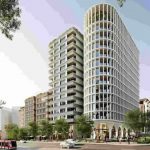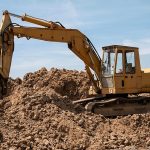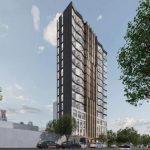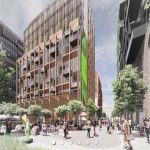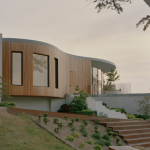Building in Bushfire Prone Areas
With bushfires already started early for this summer, it is important to know what to expect when building in one of the higher bushfire prone areas. And it is not necessarily ‘bush fires’ but also ‘grass fires’ that can be dangerous to homes. If you plan to build in a BAL rated area, you will require a Bushfire Attack Level (BAL) assessment.

GALLERY
Bushfire Attack Levels – BALs
There are 6 BALs that range from BAL-Low, BAL-12.5, BAL-19, BAL-29, BAL-40 to BAL-FZ. The higher your BAL, the more expensive your new build (or extensive extension) will be, and the more important the choice of materials could turn out to be in case you cannot leave your home early.
Development of Bushfire Standard
Since the 2009 Black Saturday bushfires in Victoria that claimed 173 lives and destroyed over 2000 homes, regulations to build homes have changed dramatically in the hope to avoid such tragedies in the future.
Many companies invested heavily into Research and Development (R&D) for safer building materials that could stand up to a bushfire, and/or protect people inside a building. Paarhammer was one of them as windows and doors can be a weak link in the building envelope.

Testing
All products had to be tested by a Nata-accredited testing facility in a real-life test and had to keep their integrity throughout the test and a cooling period.
Paarhammer windows and doors including sliding doors were tested for BAL-40 to AS1530.8.1-2007 and comply with AS3959-2009 and AS3959-2018.
Paarhammer also had windows and doors including sliding doors tested for BAL-FZ, to AS1530.8.2-2007, and comply with AS3959-2009 and AS3959-2018 without the need for shutters. This test has a 30-minute furnace cycle and a 60-minute cooling down cycle in which the products have to keep their integrity. Paarhammer products achieved this in addition to a very low heat flux.
In recent years Paarhammer also had windows and doors including sliding doors tested and approved to AS1530.4. This is the test for -/30/- minute products for use without shutters as per the 2018 Australian Standard for Building in Bushfire Prone Areas. Products with this kind of testing can only used with limitations, e.g. ‘a minimum set-back distance of 10m from the edge of vegetation’ as per the AS. The AS also states that, ‘In circumstances where the 10m setback distance between the building and the edge of the classified vegetation cannot be achieved, those elements of the building that are less than 10m from the edge of the classified vegetation shall conform to AS1530.8.2.’

Heat Flux
AS1530.8.2 measures heat flux during the test 365mm from the unexposed side of the glazing (inside) reached a radiation level of 1.1 KW/m2 for Paarhammer tilt & turn windows, fixed window, hinged door and French doors, and below 1.0KW/m2 on Paarhammer lift-slide sliding doors.
AS1530.4 test – while measuring heat flux – the combined effect of ‘radiation and convection’ -, this is not a relevant factor in this Australian Standard. Measured heat flux during the test 365mm from the unexposed side of glazing (inside) resulted in a radiation level of almost 25KW/m2.
To put this into perspective, naked skin can tolerate 5W/m2 for approximately 10 seconds only.
What’s the difference?
While Paarhammer uses the same self-extinguishing timber for the frames, it is mainly the glass that is different. For AS1530.8.2 the external glass is sacrificial whereas the inner pane of the double-glazed units is 14mm thick and features intumescent layers that swell up in case of fire to create a heat blanket. This is not the case with the double-glazed glass units for AS1530.4. These glass units are lighter and contain no intumescent layers, hence the heat flux is higher, and while cheaper, there are limitations to the use of such products.
Specifying
With Paarhammer windows and doors, the choice is yours between two very differently performing window and door products, tested to two different Australian Standards. Please be aware of the 10m classified vegetation rule of the 2018 AS when specifying windows and doors for BAL-FZ without shutters. Click here to download the flyer.
Ready to talk Bushfire Safe windows and doors? Contact Paarhammer today! See some examples of building in bushfire prone areas in Case Studies.
Capital Property Group, the developer behind several of Canberra’s most high-profile redevelopments, has expanded its presence in the ...
Australia’s construction sector could be hit with more than $1.2 billion in cumulative tariff-related costs, according to a ...
A tiny triangle of land in Adelaide’s CBD is set to make a big impression, with plans lodged ...
The Committee for Geelong has unveiled an ambitious $1 billion vision to transform the Market Square site from ...
Located on the shores of a man-made lake in Sorrento, Victoria, this ambitious build reflects the its natural ...







